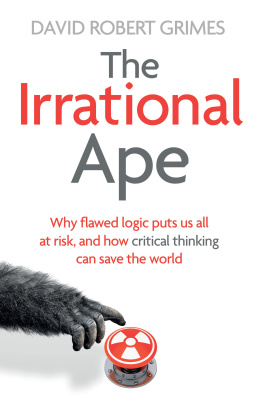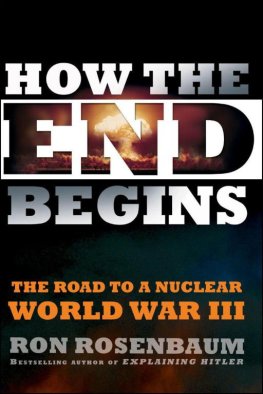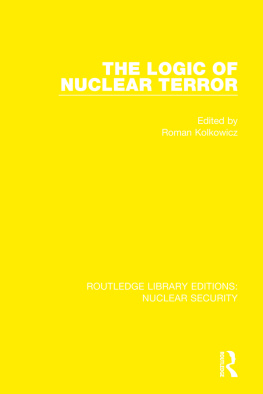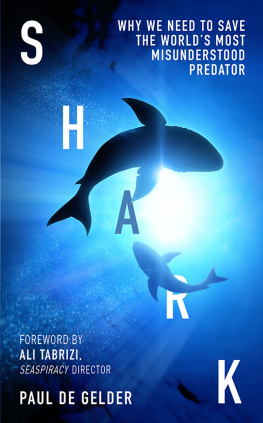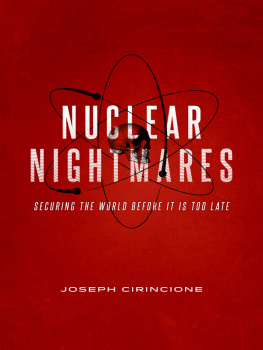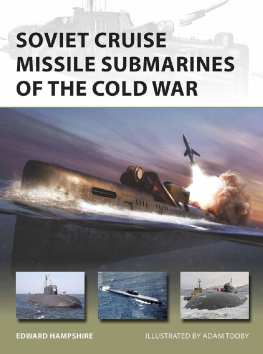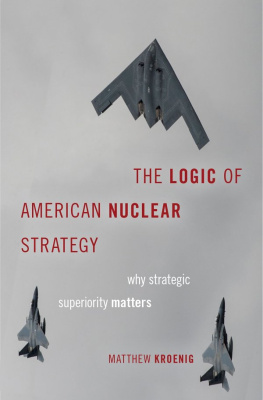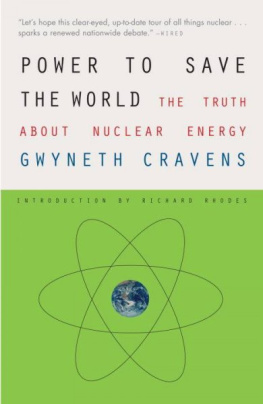To Mathilde, Danny and Laura for the inspiration, the ideas and the encouragement
PROLOGUE
As heroes go, Stanislav Petrov is hardly a household name it does not leap from our lips, nor does it adorn monuments. Yet every one of us alive probably owes our existence to this obscure Russian.
Why? Well, on 26 September 1983, Petrov was a lieutenant colonel in the Soviet Air Defence Forces. He was serving as the chief officer on duty at Serpukhov-15, a bunker just outside Moscow. This facility was home to OKO , the Soviet missile early warning system Russias eye on its enemy. These were fraught times. The Cold War was at its zenith, and deployment of US nuclear-missile systems across Europe had enraged the Kremlin. Tensions between the United States and the Soviet Union had never been higher. Just weeks before, the Soviets had shot down a South Korean civilian flight, killing all 269 passengers on board including a US congressman.
With President Reagan denouncing the Soviet Union as an evil empire, relations between the two superpowers had deteriorated to a state of alarming brinkmanship and whispered in the corridors of power on both sides was the very real prospect of nuclear war. It is difficult to overstate the incredible firepower under these rival nations command. The first half of the twentieth century had seen physicists uncover the secrets of nuclear fusion, discovering how stars produce their incredible energy. Over subsequent decades both the USA and USSR had spent vast fortunes exploiting this, not for the betterment of humankind but to craft nuclear arsenals capable of obliterating whole cities. With such dreadful firepower, there could be no victors only survivors.
Against this backdrop, alarms at Serpukhov-15 began their mournful September wail, signalling that five American missiles were inbound. The unthinkable had become reality: nuclear war was imminent. Stanislav Petrov had long drilled for such an occasion and his instructions were clear: it was his duty to inform his superiors that war had begun. Their response would be inevitable: the Russians too would unleash a volley of nuclear warheads. The Soviet Union would be destroyed, but they would in turn destroy America. In the crossfire every other nation on earth would be targeted by both superpowers, seeking to nullify any potential advantages for any rival that might survive and vie to rule the ashes.
Petrov was all too aware of this grim future. He also knew that once this news was elevated up the chain of command, the Soviet Unions military commanders would waste no time scrambling to destroy their nemesis in retaliation. Every moment he delayed risked ceding more of an advantage to the American assault, a fact that couldnt have escaped his fellow officers. To them, this was no time for reflection it was time for decisive action. In this crucible of relentless pressure, Petrov made a different choice. Instead, he called the duty officer and calmly reported OKO as faulty. His colleagues were aghast, but as chief officer his word was final. There was nothing to do now but wait to see whether the lieutenant colonel was correct or whether they would be incinerated.
That we are here is proof that Petrovs instinct was vindicated. His reasoning had been simple and elegant: were the United States to launch an attack, it would have had to be all-out. They would have had to overwhelm the USSR s missile defences in the hope of wiping their opponent from the face of the earth. They would have known that Russia would reply in force. If an attack were to come, it would have had to be an almost unfathomable barrage. Yet a paltry five missiles was a far cry from this strategy. Nor had the ground radar picked up any corroborating evidence. Weighing up the probabilities, Petrov had therefore arrived at the conclusion that a malfunction was a much more likely explanation. As it would later transpire, his reasoning was entirely correct the ominous warheads seen by OKO were nothing more than reflections from low clouds, misinterpreted by the detector.
Petrovs insistence on reasoning before reacting had averted total nuclear annihilation. By all rights, he deserved to be feted as a hero the world over. Instead he was reprimanded, ostensibly for failing to document his actions adequately during the crisis. This was an impossible ask, as he recalled years later: I had a phone in one hand and the intercom in the other, and I dont have a third hand. In reality, Russian military command was embarrassed by the failure of their cutting-edge system and eager to spread the blame. Feeling scapegoated, Petrov eventually suffered a nervous breakdown. He left the military the following year, joining a research institute. Beyond the upper echelons of the Soviet military, no one knew about his actions, nor how close to destruction we had come. It wasnt until 1998 that the world learnt of Petrov. Even then, he remained modest, claiming right up until his death in 2017 that he had only been doing his job. Perhaps so but think of what might have transpired had a less reflective individual been in command.
This was far from the only close call of the Cold War. Two decades before the OKO affair, on 27 October 1962 at the height of the Cuban missile crisis, something even more alarming transpired. While Khrushchev and Kennedy engaged in frantic diplomacy to prevent war, another crisis was simmering deep beneath the surface of the North Atlantic Ocean, unknown to either leader. The Soviet submarine B-59 had been detected by the US Navy, and in response dived too deep to communicate with the outside world. Pursued by the aircraft carrier USS Randolph and 11 destroyers, the B-59 crew had been unable to contact Moscow for days. No one aboard had any idea if war had begun or how to proceed.
In an attempt to force the submarine to surface for identification, the Americans then began dropping depth charges, which was unsurprisingly interpreted by the Russians as an act of aggression. The three senior officers on board Captain Valentin Savitsky, political officer Ivan Semonovich Maslennikov, and flotilla commander Vasili Arkhipov gathered to formulate a response. Cut off from Moscow, B-59 had autonomy to respond to threats and, if required, the authority to deploy the single T-5 nuclear torpedo in the ships arsenal. This was a nuclear capability of which their American pursuers were entirely unaware as they continued hounding the beleaguered sub.
Aboard B-59 , the atmosphere was oppressive. The air conditioning had failed and the already cramped enclosure was like an inescapable sauna, with temperatures climbing above 50C. Carbon dioxide had risen to dangerously high levels, and oxygen was low neither situation conducive to rational decision-making. Drinkable water was in short supply too, and crew members were restricted to a single glass of water a day. With American depth charges constantly rocking B-59 , intelligence officer Vadim Orlov later described how each barrage felt like sitting in a metal barrel with someone hitting it with a sledgehammer. In such hellish conditions, the rattled Captain Savitsky accepted that war had already begun. There may be a war raging up there and we are trapped here turning somersaults. We are going to hit them hard. We shall die ourselves, sink them all, but not stain the navys honour, he proclaimed, ordering his crew to target the USS Randolph with the 15-kiloton nuclear torpedo.
Maslennikov agreed. Normal protocols dictated that a decision to launch required the approval of the captain and political officer only. But Arkhipovs position as flotilla commander gave him equal rank with Savitsky. For B-59 to use its nuclear weapon, all three would have to consent. With Savitsky and Maslennikov resolved to fight, the decision to strike now rested entirely upon Arkhipovs broad shoulders. Upon his word, the Randolph would have been completely vaporised by the nuclear payload, an act that would have triggered a Third World War. Neither the Kremlin nor the White House knew that this momentous decision was being made. In the words of historian Arthur M. Schlesinger Jr, this was not only the most dangerous moment of the Cold War. It was the most dangerous moment in human history.

